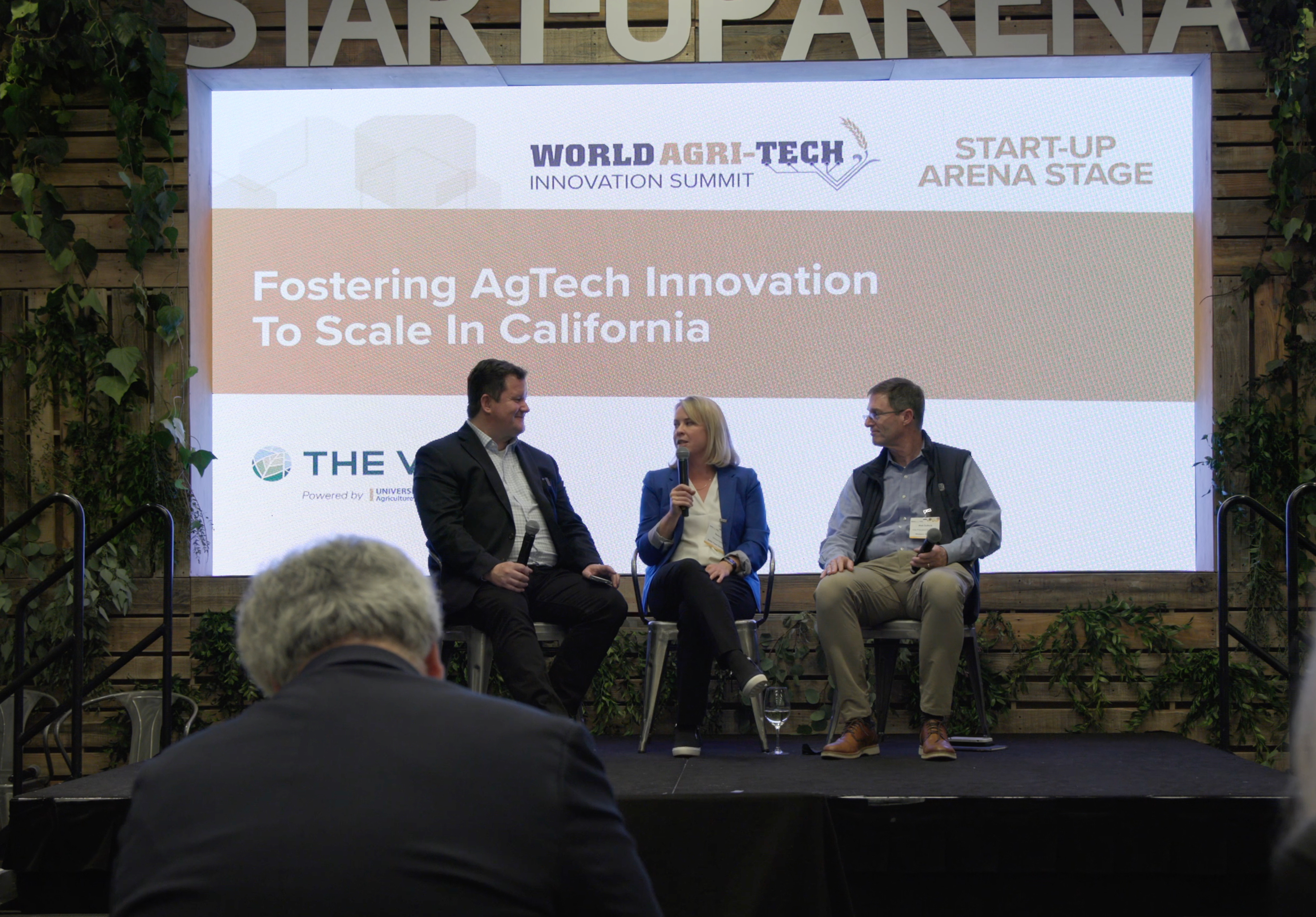California’s agriculture industry, a cornerstone of the state’s economy, faces a unique set of challenges in the form of climate change, drought, population growth, and labor shortages. To overcome these hurdles, agtech innovations must be at the forefront of creating sustainable and resilient solutions that can secure a thriving future for California’s agriculture. The recent World Agri-Tech Innovation Summit shone a spotlight on the role of agtech in addressing these challenges.
A key sponsor, The VINE played a significant role in the summit by hosting a welcome breakfast on day one as well as a fireside chat and roundtable discussion. These events provided valuable insights into how the agricultural community can come together to foster innovation and drive solutions for a more sustainable future.
The fireside chat, “Fostering AgTech Innovation To Scale In California,” was hosted by Gabe Youtsey, CIO of the University of California, Agriculture and Natural Resources, and featured guests Seana Day (Better Food) and Walt Duflock (Western Growers Association). The discussion emphasized the importance of promoting agtech innovation beyond urban areas and fostering collaboration between various stakeholders, including farmers, startups, and investors.
Seana Day shared her experience of moving back to her hometown in the Central Valley from London and highlighted the immense potential in California’s rural areas: “Just seeing the level of creativity, the talent, the level of innovation happening around our communities outside of the Bay Area, outside of certain urban parts of California, is really inspiring.” She also emphasized the need to invest in startups and entrepreneurs in these regions, stating, “I think we as an industry have so much more we can do to help support that innovation regionally.”
Walt Duflock spoke about initiatives such as the Global Harvest Automation Initiative (now rebranded as the Specialty Crop Automation Initiative) and the Biologicals Initiative, which aim to support agtech startups in various ways, from providing technology building blocks to organizing events and training programs. He noted, “We want to be the connective tissue between those startups and our growers.”
Gabe Youtsey discussed the numerous innovation ecosystems across California and invited summit attendees to engage with the VINE team and their partners. He concluded the chat with a call for collaboration, stating, “We’re really pushing to build an innovation ecosystem that pulls together a lot of these players across California… There’s an amazing ecosystem of innovators that is living and growing and scaling right here, not just in the Bay Area, Silicon Valley, but also really across the state in our rural food-producing regions.”
During the roundtable titled “University-Industry Partnerships: Accelerating AgTech Innovation At Scale,” Josh Viers, Associate Dean for Research and Director of CITRIS & Banatao Institute at UC Merced, and Daniel Sabzehar, Managing Partner at Tesserakt Ventures, emphasized the importance of collaboration between academia and industry. The participants discussed successful case studies and shared best practices for fostering innovation through university-industry collaborations.
Throughout the summit, The VINE’s involvement showcased the organization’s commitment to fostering agtech innovation and providing a platform for meaningful discussions on the future of agriculture in California. Attendees left the event inspired and energized, ready to tackle the challenges facing the industry with newfound knowledge and connections.
We extend our heartfelt gratitude to the members of the VINE team and our partners for making this event a resounding success. Together, we can continue to propel agtech innovation forward and create a more sustainable and resilient future for the agriculture industry. As the industry faces unprecedented challenges, it is more important than ever to foster and support agtech innovations that will help secure a sustainable future for generations to come.

